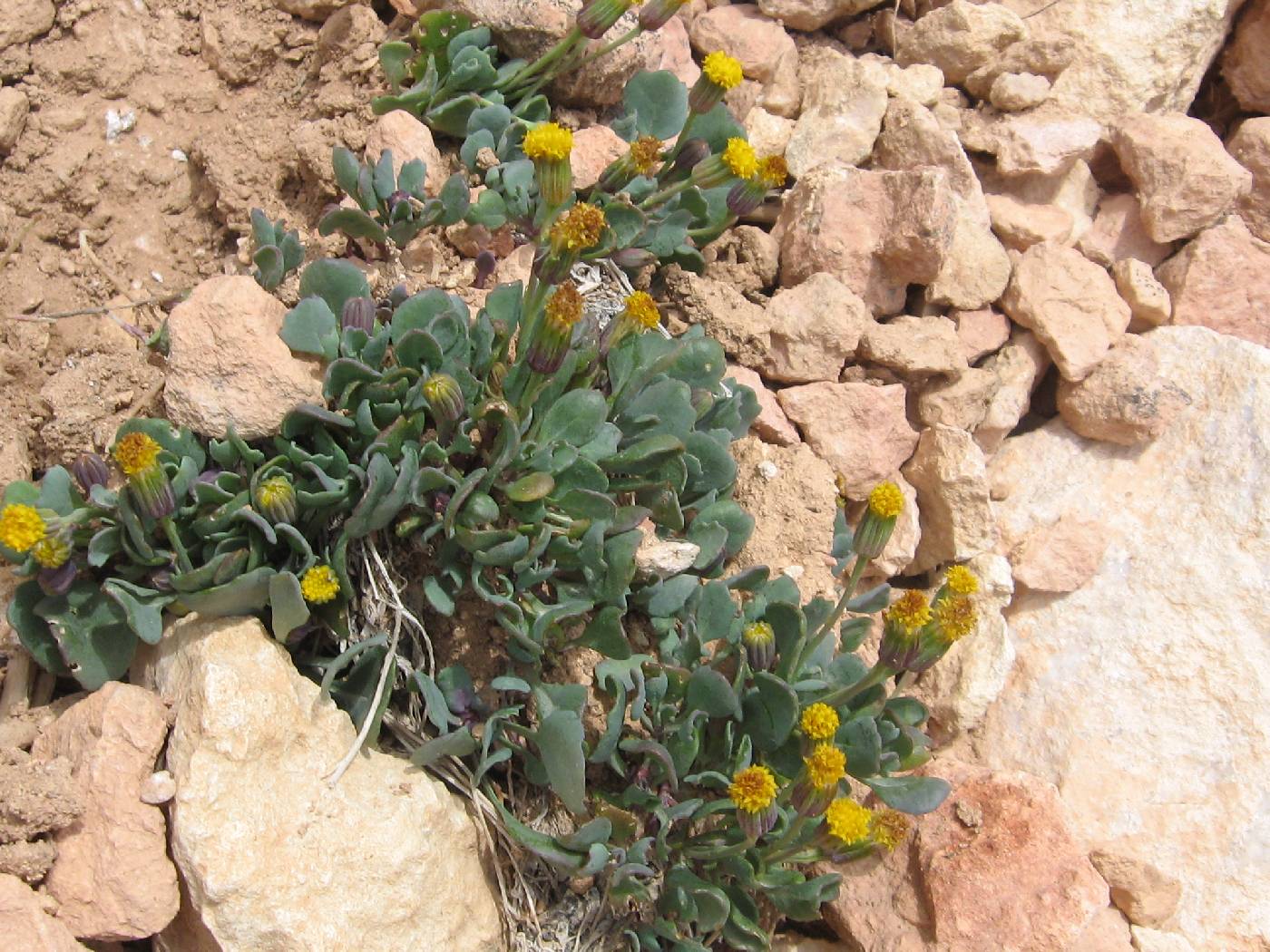Packera
|
Family: Asteraceae |
Annuals, biennials, or perennials, 3-100+ cm (rhizomatous or taprooted, often with relatively thin, branched fibrous roots). Stems single or clustered. Leaves basal and cauline (gradually or abruptly reduced distally); alternate; petiolate (mostly basal) or sessile; blades pinnately nerved, elliptic, lanceolate, linear, lyrate, orbiculate, ovate, reniform, or spatulate (and most intermediate shapes, blades often pinnately lobed to pinnatifid or pinnatisect), ultimate margins entire or crenate, dentate, or serrate to denticulate (callous denticles relatively few or 0). Heads radiate or discoid, borne singly or in compact or congested to open, corymbiform, cymiform, or subumbelliform arrays. Calyculi 0 or 1-5+ bractlets. Involucres campanulate to cylindric, 5-12 mm diam. Phyllaries persistent, usually 8, 13, or 21(-30+) in 1-2 series, erect (reflexed in fruit), distinct, (light to dark green, yellowish, reddish, or cyanic) linear to ensiform, equal to subequal (glabrous or hairy), margins usually ± scarious. Receptacles flat, foveolate, epaleate. Ray florets 0 or (1-)5-13, pistillate, fertile; corollas pale yellow to orange-red (tubes 1-4 mm, laminae 4-16 mm). Disc florets 20-80+, bisexual, fertile; corollas pale yellow to deep orange-red, tubes shorter than to equaling campanulate throats, lobes 5, erect to recurved, usually ± deltate; style branches stigmatic in 2 lines, apices usually truncate-penicillate. Cypselae cylindric, usually 5-10-ribbed (ribs usually prominent), glabrous or hirtellous; pappi readily falling, of ± 60+, white, barbellulate bristles. x = 20, 22, 23. Packera is a segregate of Senecio. It contains species that have traditionally been referred to as the 'aureoid senecios,' an informal group first recognized by Asa Gray. Base chromosome numbers of x = 22 or 23 and a suite of morphologic characters have been used in circumscription of Packera. Studies involving molecular data and palynological analysis lend additional support for recognition of the genus. Some species of Packera are abundant and widely distributed, thriving in disturbed habitats. Others are narrow endemics, restricted to specialized habitats, or isolated on mountain peaks. Some species from the latter group are listed as threatened or endangered; others are in need of further study to determine their conservation status. Species boundaries in Packera are imprecise. Some species hybridize to some extent with others whenever they come into contact; other species or species groups provide taxonomic problems that have yet to be resolved. Authors of relatively recent studies of the widespread P. streptanthifolia and P. paupercula propose dividing the species into varieties based on subtle differences in vegetative morphology and population-level differences in chromosome numbers. In this treatment, while recognizing the value of such work in elucidating evolutionary relationships, I do not discuss most of those proposed varieties. Some of the characteristics used to separate the varieties are overlapping or not readily discernible. Identification of a given specimen may be reached at multiple points within the key.
|

